The Parthenon Marbles are exhibited in the British Museum in London. They are a magnificent collection of classical sculpture, that once were part of the temples in the Acropolis of Athens Greece.
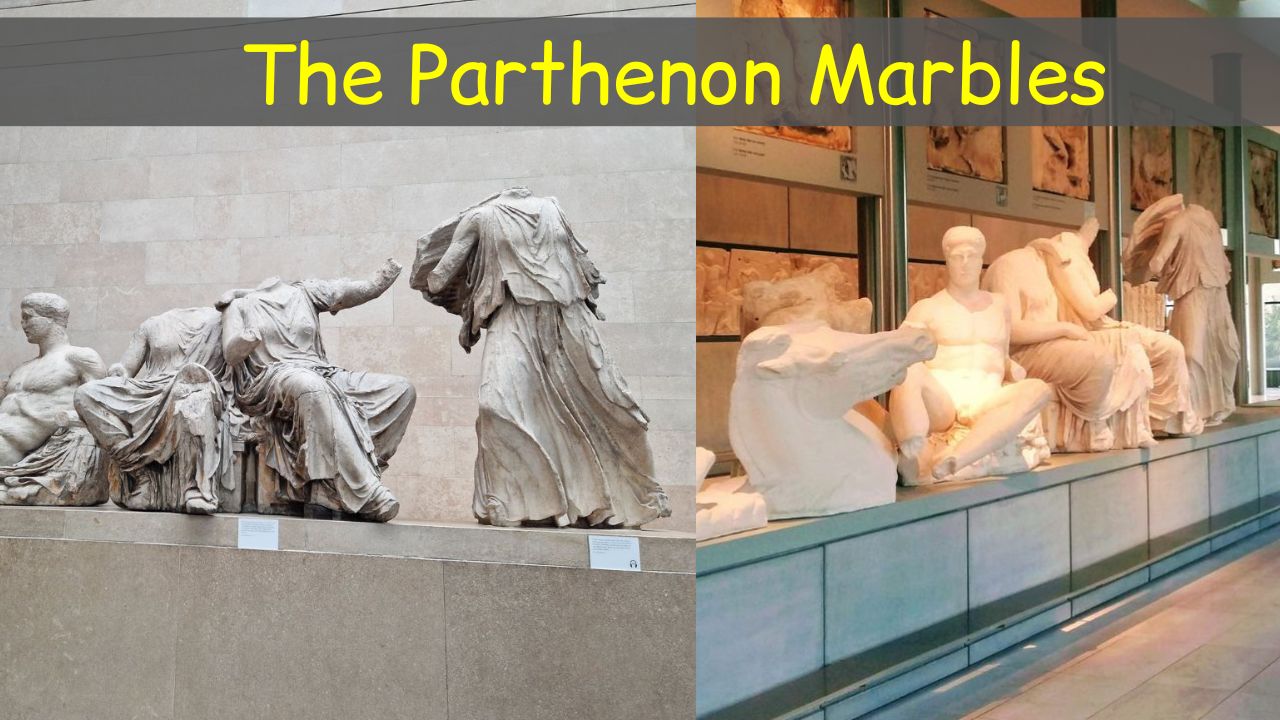
What are the Parthenon Marbles?
The Parthenon Marbles, often referred to as the Elgin Marbles, are a large collection of Ancient Greek sculptures that were once on the Parthenon, at the Acropolis of Athens. They are currently on display in the British Museum in London.
This remarkable collection represents classical sculpture at its finest. It consists of intricate carvings, metopes (rectangular relief panels), friezes (decorative bands), and pedimental sculptures. Visitors can see various figures of gods, mythical creatures, warriors, and scenes from Greek mythology.
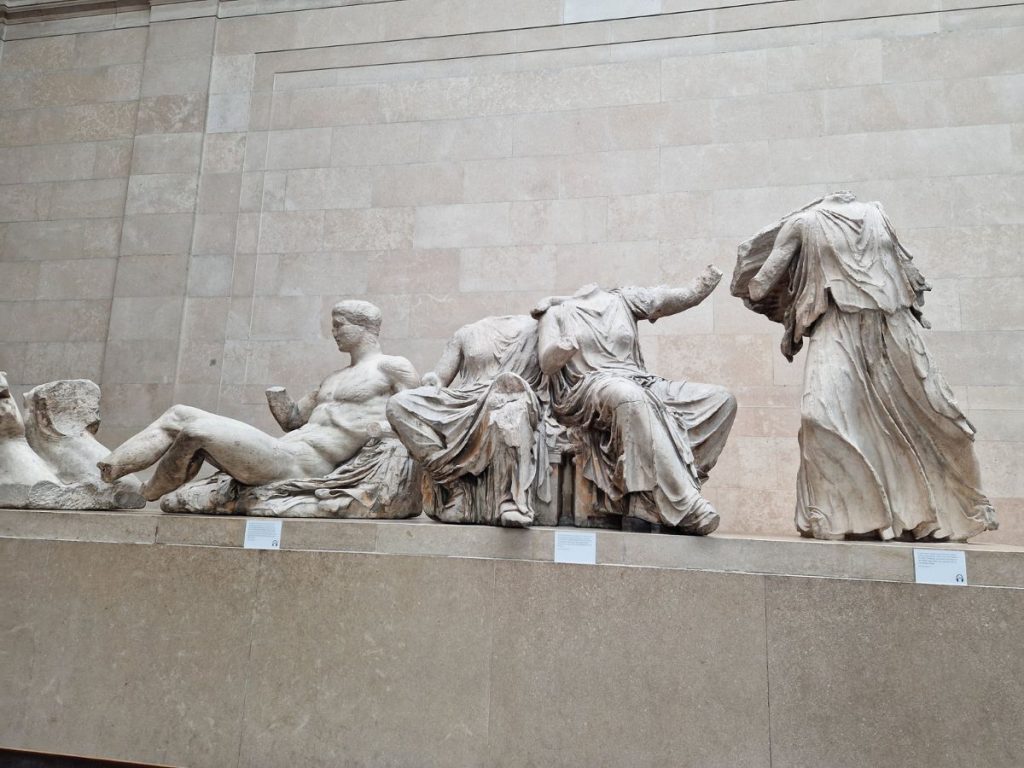
The original Parthenon Marbles in the British Museum
But how did those Marbles get to London? Here is a super short summary!
Let’s go back a couple of hundred years, when Greece was still under the rule of the Ottoman Empire.
Between 1799 and 1803, the British Ambassador to the Ottoman Empire was Thomas Bruce, the 7th Earl of Elgin. He asked, and received, permission from the Ottoman authorities to remove some of the sculptures from the Parthenon.
His agents removed a large part of the collection from the Parthenon, along with one of the Caryatids statue from the Erechtheion temple, and shipped them to Britain.
In 1816 / 1817, the Marbles were acquired by the British Museum, where they have been ever since. There is a whole section in the British Museum, called the Parthenon Galleries, where the Parthenon Marbles are displayed.
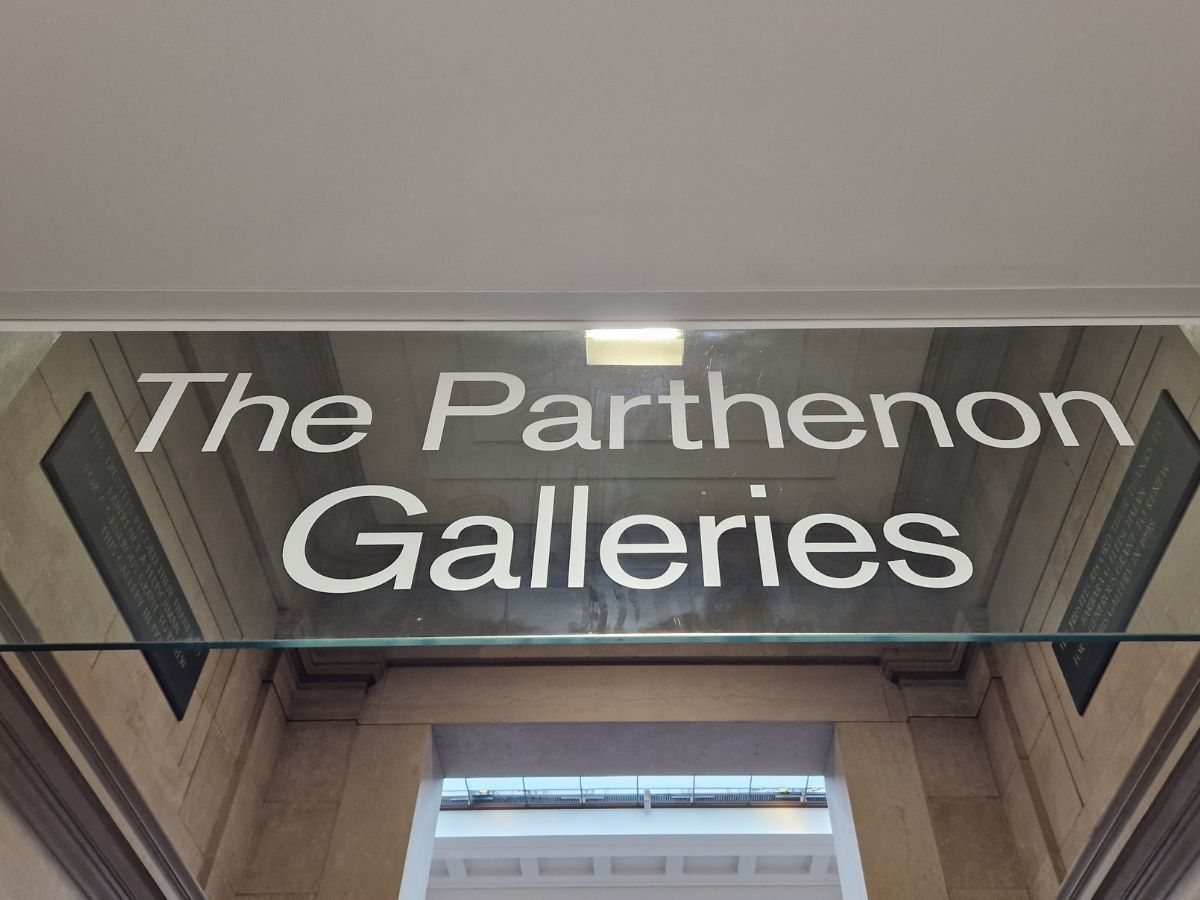
As it was Lord Elgin who had asked for them to be removed, the sculptures are also known as the Elgin Marbles.
Though, to be fair, they should be known as the Phidias Marbles. Phidias, or Pheidias, was an Ancient Greek sculptor, architect and painter. He was the creator of this exquisite collection, and he also created other significant artworks.
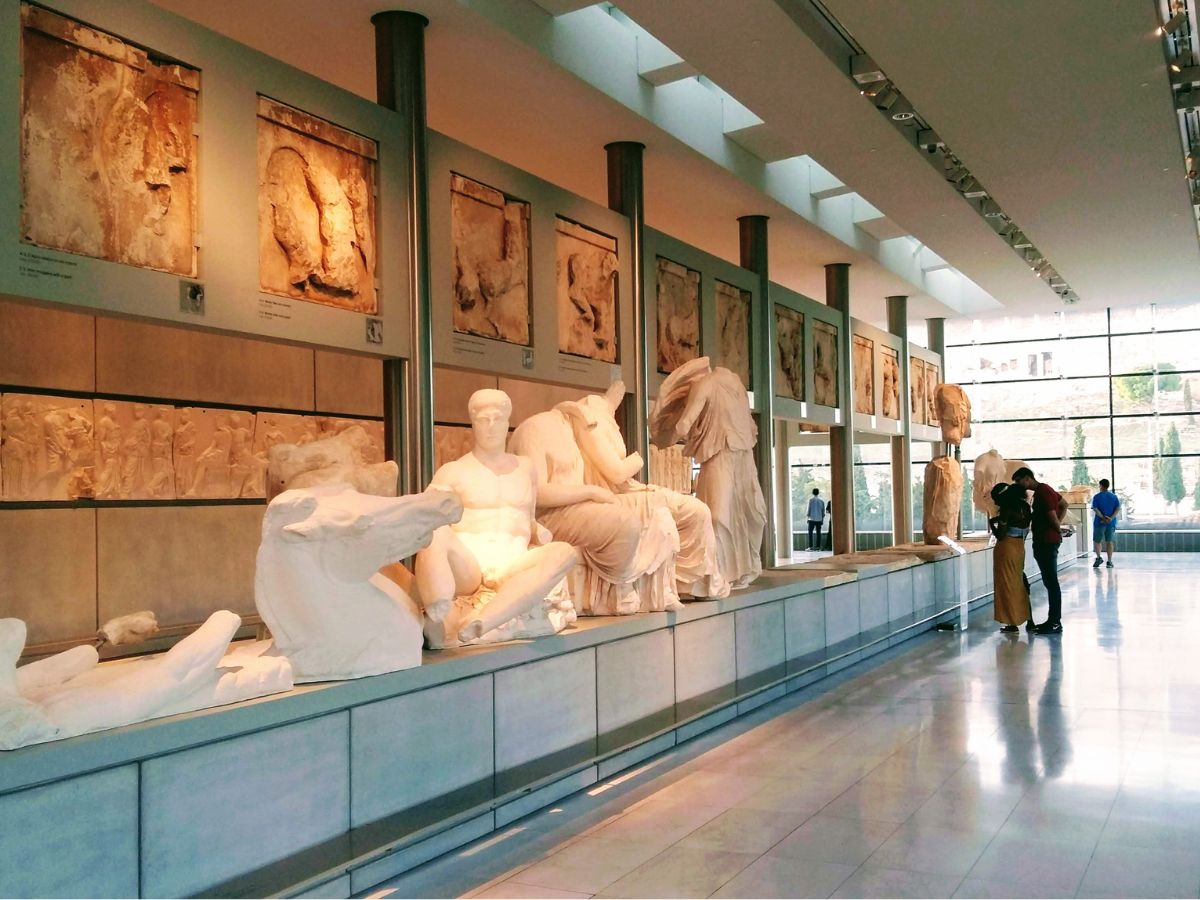
Casts of the original Parthenon Marbles in the Acropolis Museum
The debate over the Elgin Marbles
Since their acquisition, the Elgin Marbles have been a subject of huge controversy. Greece has long sought the return of these sculptures, considering them an integral part of the Greek cultural heritage.
The majority of the Elgin Marbles remain on display in the British Museum in London. Debates about their ownership and rightful location have been going on for several decades.
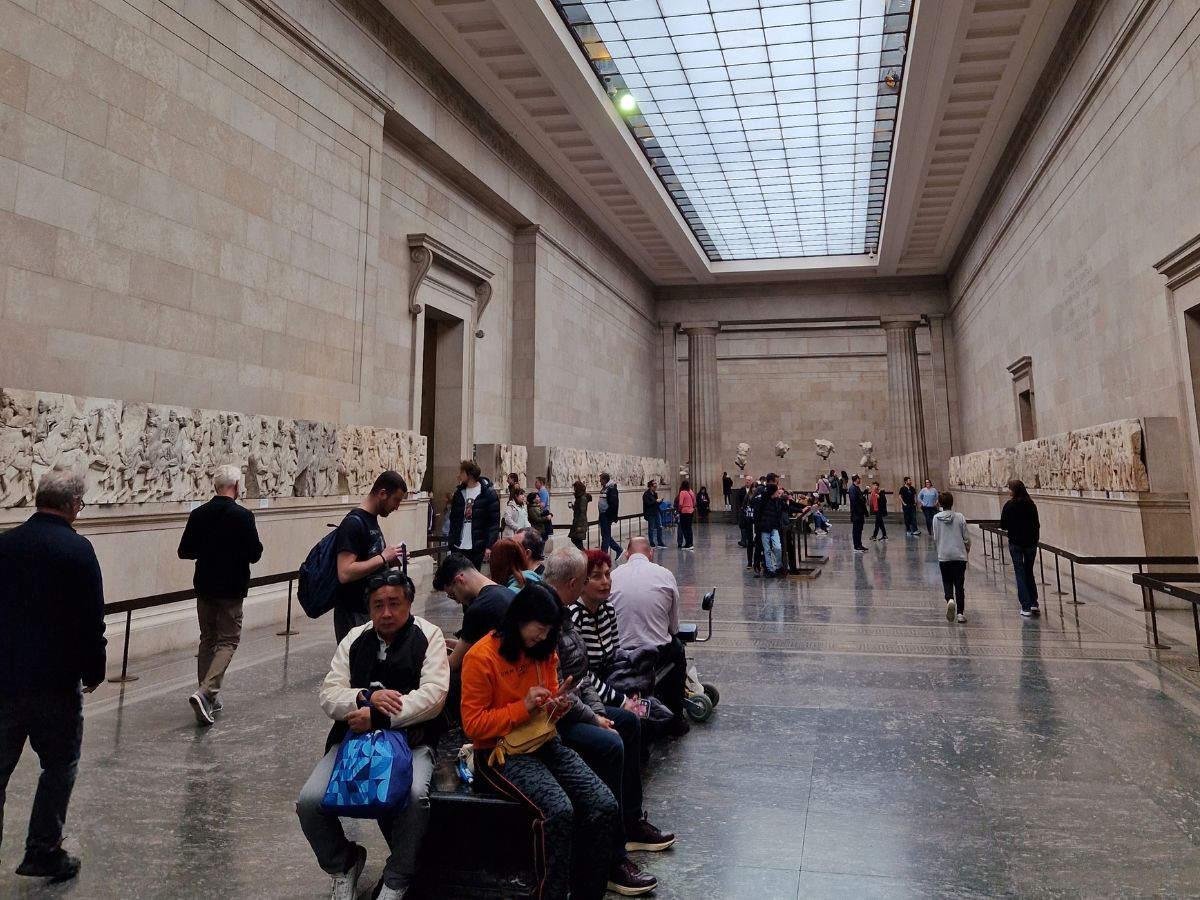
Supporters of their return to Greece argue that the marbles were taken without proper consent and that they should be reunited with the remaining Parthenon sculptures in Athens. However, the British Museum maintains that the marbles were legally acquired by Lord Elgin and are an essential part of the museum’s collection, representing a significant chapter in world art history.
The debate over the rightful ownership and display location of the Elgin Marbles remains a contentious issue between Greece and the United Kingdom.
In the past, one of the arguments against returning the Marbles to Greece was that Greece did not have an appropriate venue to exhibit them, but this was solved when the Acropolis Museum opened its doors to the public in 2009.
Since then, millions of people have visited the Acropolis and the Acropolis Museum. But the Elgin Marbles, including one of the Caryatids statues, still remain in the British Museum.
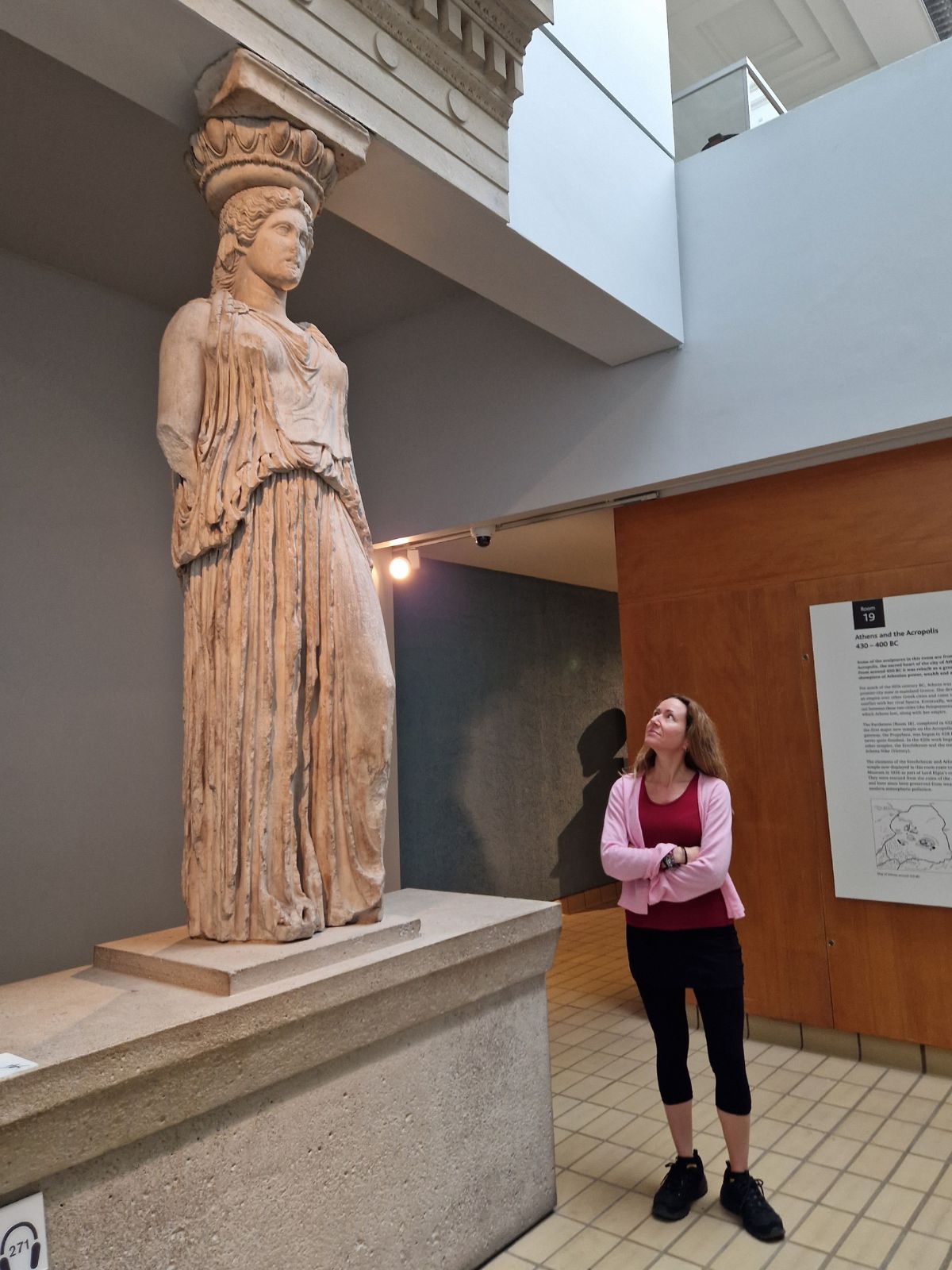
A sole Caryatid in the British Museum
The Greek Marbles sparked a debate between PMs Sunak and Mitsotakis
You may have heard about the recent incident involving the British PM, Rishi Sunak, and the Greek PM, Konstantinos Mitsotakis. The two PMs were scheduled to have a meeting during Mitsotakis recent visit to London.
However, Sunak cancelled the meeting at the last minute. Apparently, it came to his attention that Mitsotakis was planning to raise the long-standing issue of the Parthenon Marbles, although there was a previous agreement that this matter would not be discussed.
The Greek government denied that there was such an agreement in place. Mitsotakis originally stated that he was annoyed with the last-minute cancellation, but later called it an “unfortunate event”.
Interestingly, in a recent survey which was carried out in the UK, one in two people answered that the Elgin Marbles should return to Greece. Only 15% answered that they should remain in the UK.
 On another note, 66% of the survey participants answered that the British PM’s decision to cancel the meeting was wrong.
On another note, 66% of the survey participants answered that the British PM’s decision to cancel the meeting was wrong.

You can see more data from this survey here.
As you can imagine, this has been the most important piece of news here in Greece in the past few days. Whether this incident will spark a diplomatic issue between Britain and Greece remains to be seen!
Melina Mercouri and the Parthenon Marbles
Obviously, the Greek PM is not the first person who tried to raise this issue. The late Melina Mercouri, former Minister of Culture, was extremely passionate about the Parthenon Sculptures returning to Athens Greece.
Mercouri made a beautiful, emotional speech a long time ago. You can watch it in this great video, at around 10:10.
The Parthenon Marbles are our pride. They are our identity. They are today’s link with Greek excellence. They are creations synonymous with our concepts of democracy and freedom. They are to us the sublime testimony offered by Greek artists that man can be noble. They are our ancestry. They are our cultural heritage. They are our soul.
Imagine, if you possibly can, with slashing tools parts of Michelangelo’s paintings were ripped from the chapel board and taken to a foreign country. Would Italy have the right to ask for the return of those parts of the Sistine Chapel masterpiece?
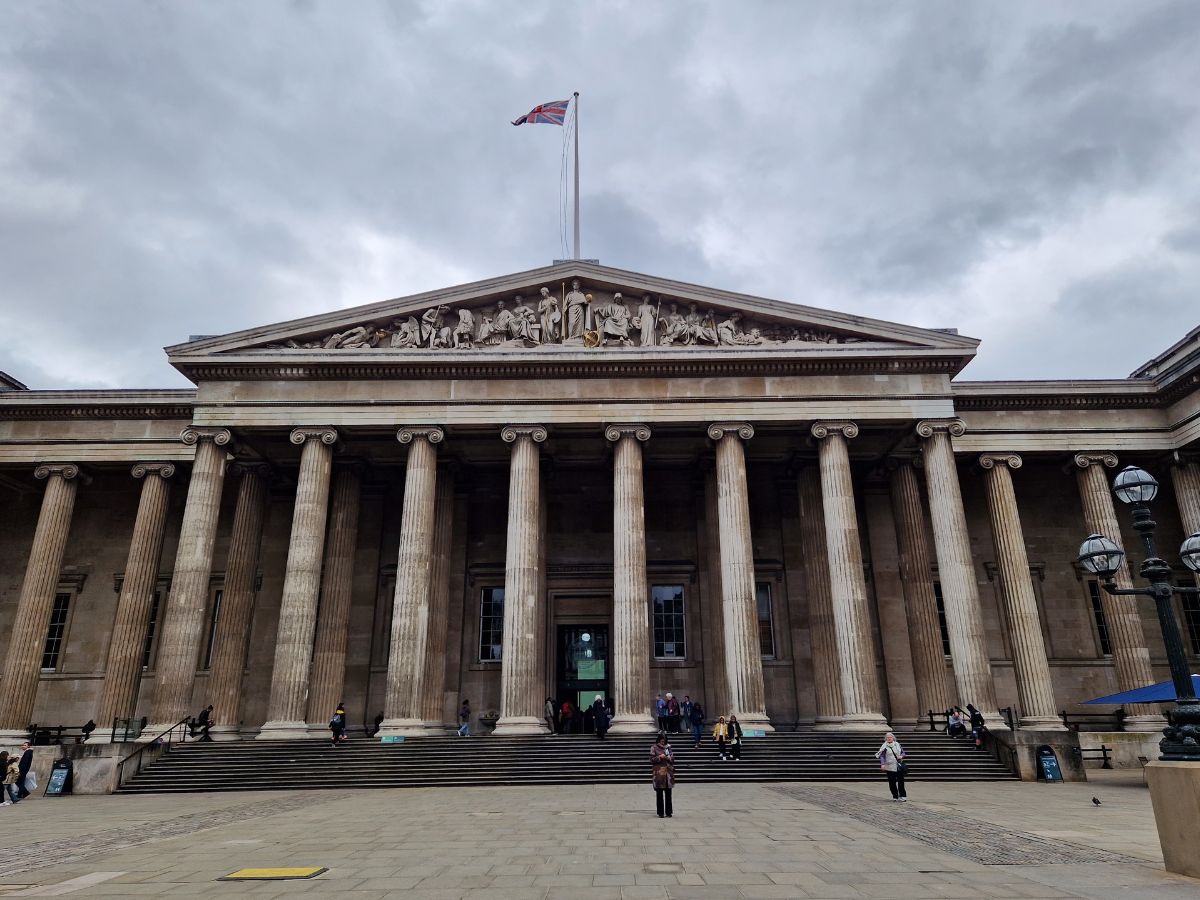
Doctor David Wilson, director of the British Museum, keeps asking the same monotonous question: Why do we not ask for France the return of the Venus De Milo?
This question seems to me to be a deliberate smoke screen. Doctor Wilson, I believe, knows well that we think it is wrong to ask the world’s museums to empty their shelves of foreign creations. We have repeated this again and again.
The point is, the Venus De Milo is an individual piece, a statue. The Parthenon Marbles are parts of a unique monument, torn from its integrity. The question is not what right does Greece have to the Marbles, but rather what right does England have to the Marbles.
Yes, Mercouri was really passionate about Greek culture, ancient history and the Marbles. It’s a shame she never lived to see the Acropolis Museum…
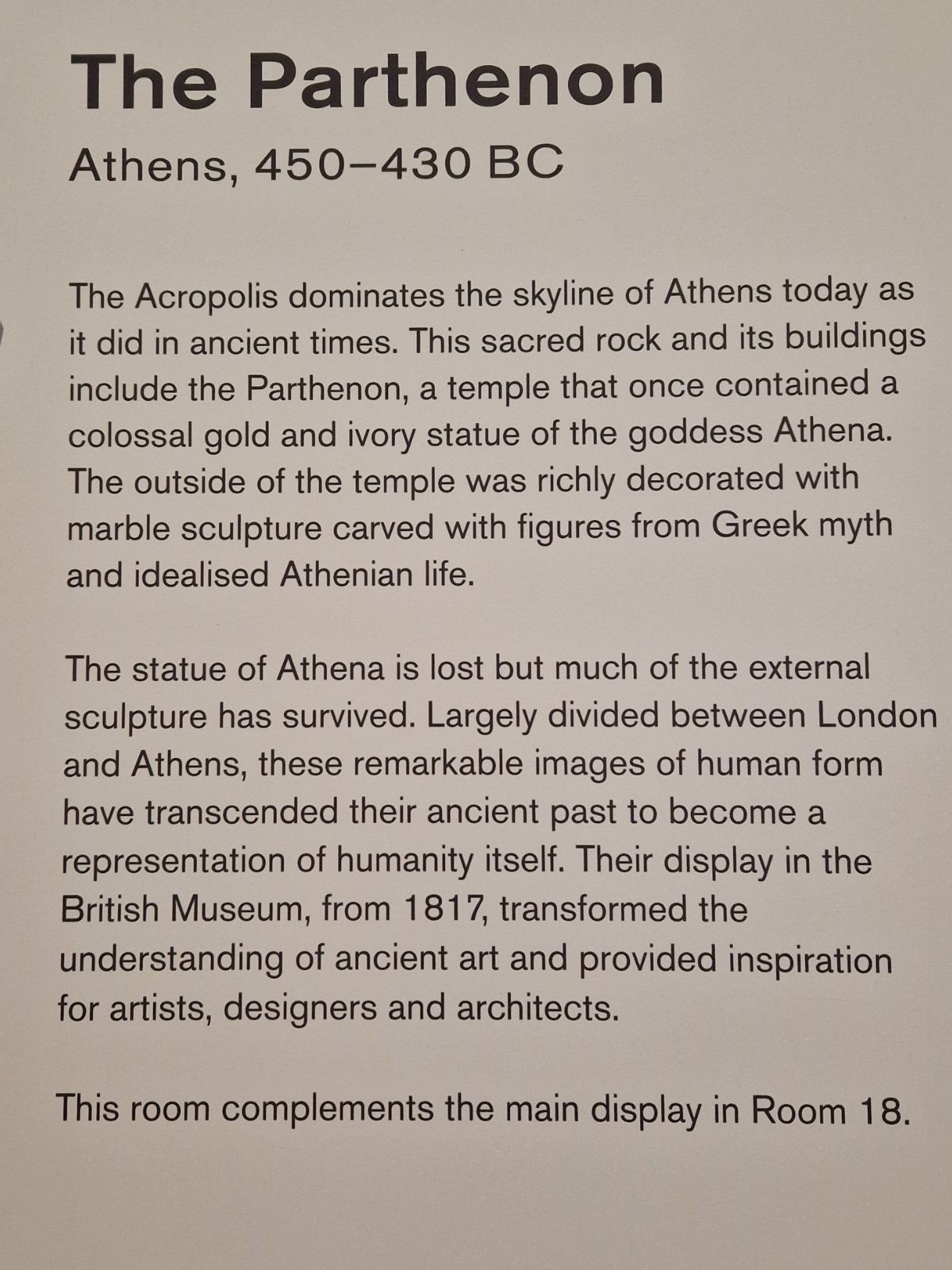
Mercouri’s speech at the Oxford Union, June 12, 1986
Mercouri was invited to talk to the Oxford Union in 1986. Here is an excerpt of her passionate speech:
…And the Parthenon Marbles they are. There are no such things as the Elgin Marbles.
There is a Michael Angelo David.
There is a Da Vinci Last Supper.
There is a Praxiteles Hermes.
There is a Turner “Fishermen at Sea”.
There are no Elgin Marbles!
[…]
You must understand what the Parthenon Marbles mean to us. They are our pride. They are our sacrifices. They are our noblest symbol of excellence. They are a tribute to the democratic philosophy. They are our aspirations AND our name. They are the essence of Greekness.
We are ready to say that we rule the entire Elgin emprise as irrelevant to the present.
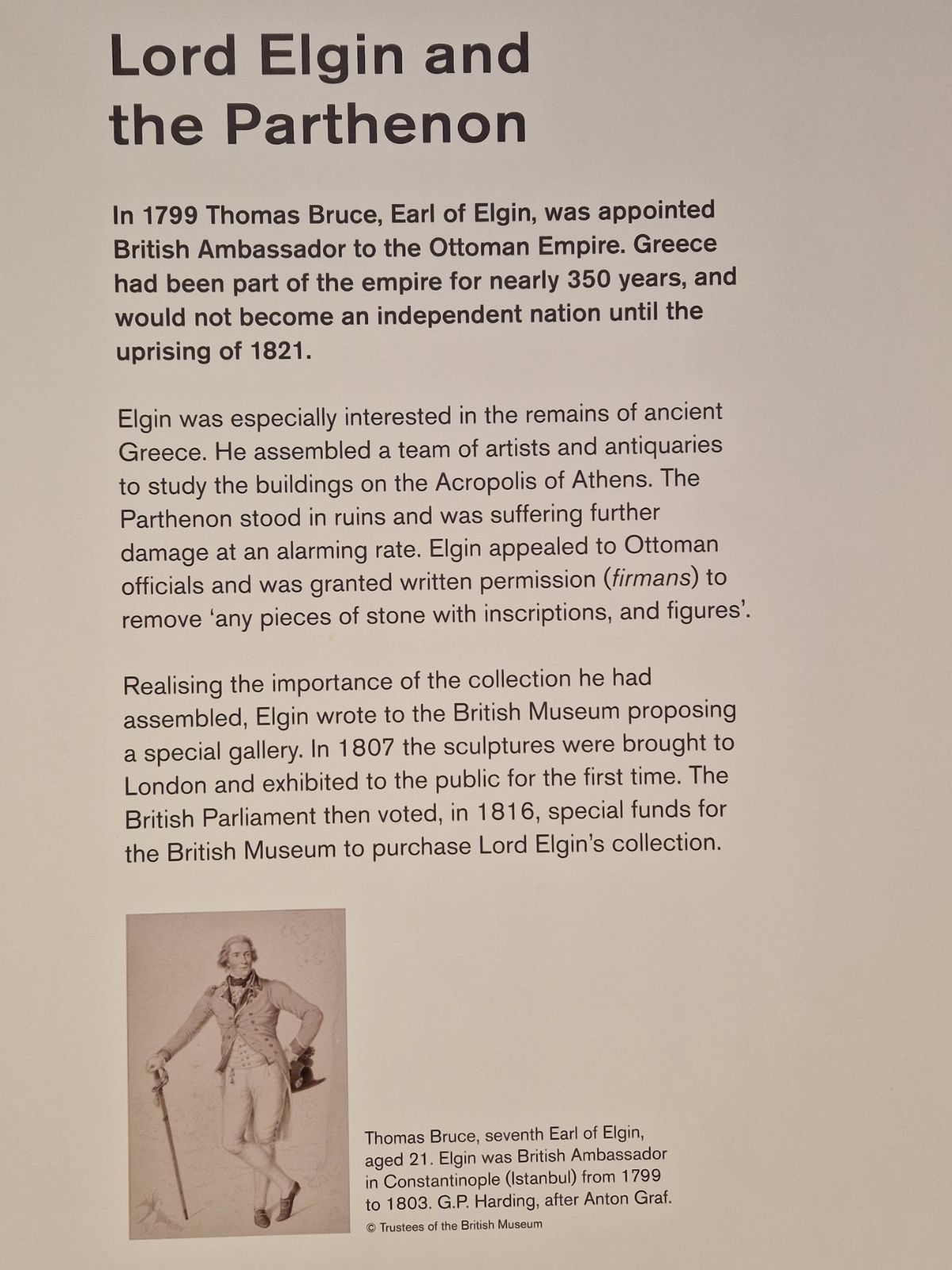
Information panel in the British Museum
We say to the British government. You have kept those sculptures for almost two centuries. You have cared for them as well as you could, for which we thank you. But now in the name of fairness and morality, please give them back. I sincerely believe that such a gesture from Great Britain would ever honor your name.
You can read Mercouri’s full speech here.
What do you think about the Parthenon Marbles?
I first visited the British Museum back in 1999 – long before the Acropolis Museum opened its doors. Being Greek, I felt very strongly that the Elgin Marbles should not be there.
I also remember being annoyed with the rather dim lighting in the room. It was nothing like the natural light that we get here in Greece!
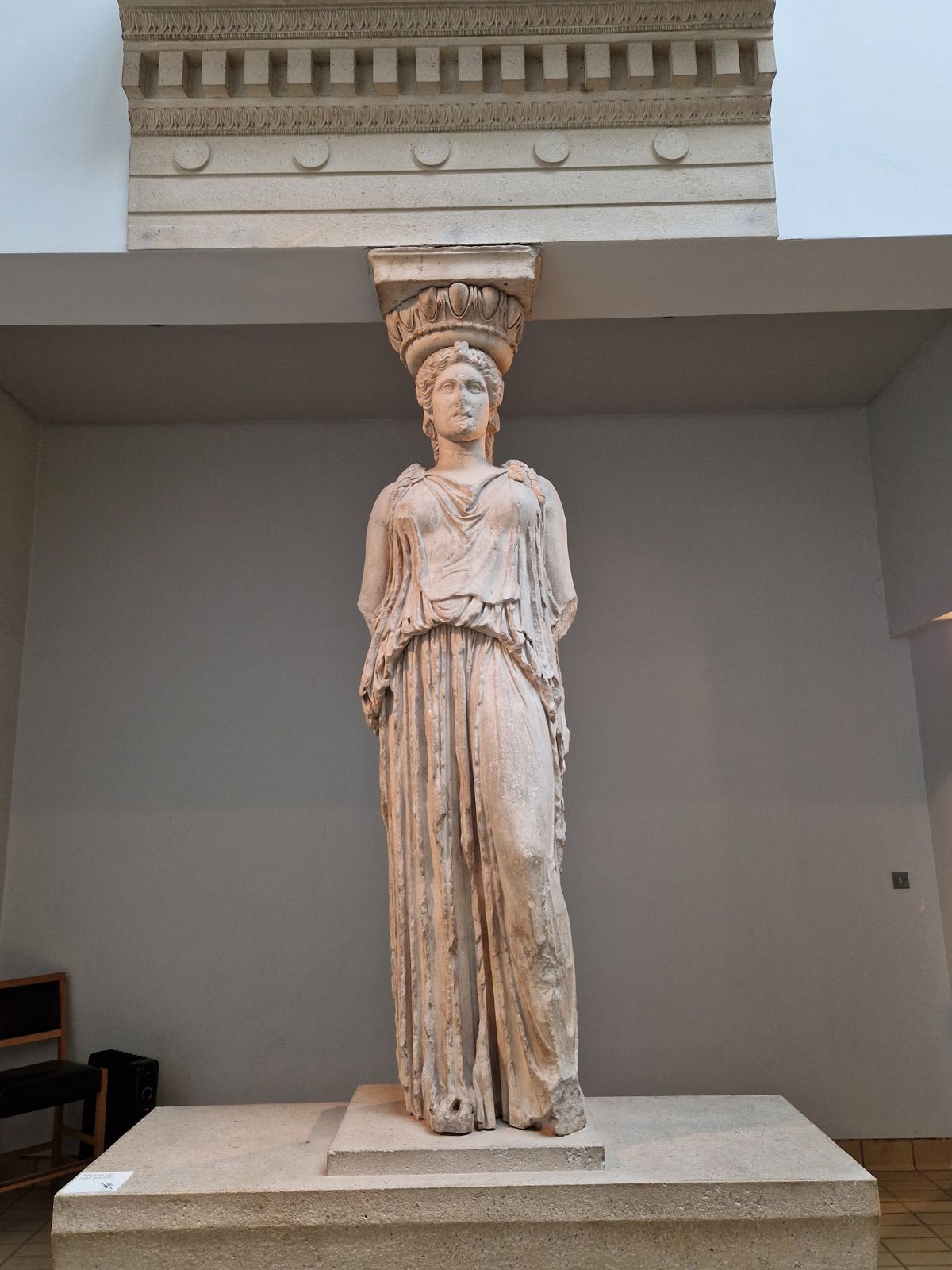
The lone Caryatid in the British Museum
Since then, I’ve been to the British Museum a few times. I have to say, I absolutely adore that museum. If I’m to be honest, I really appreciate how much of the world’s history and culture visitors can see in just one place.
However, I can’t help thinking that the Elgin Marbles should all be together in Greece, where they belong. I am not sure why the Acropolis Museum should be home to casts of the originals!
And, I know that this sounds like a bad cliché, but the one Caryatid statue in that tiny little room in the British Museum actually looks horribly, horribly out of place. She would look so much better alongside her “sisters” in the Acropolis Museum.
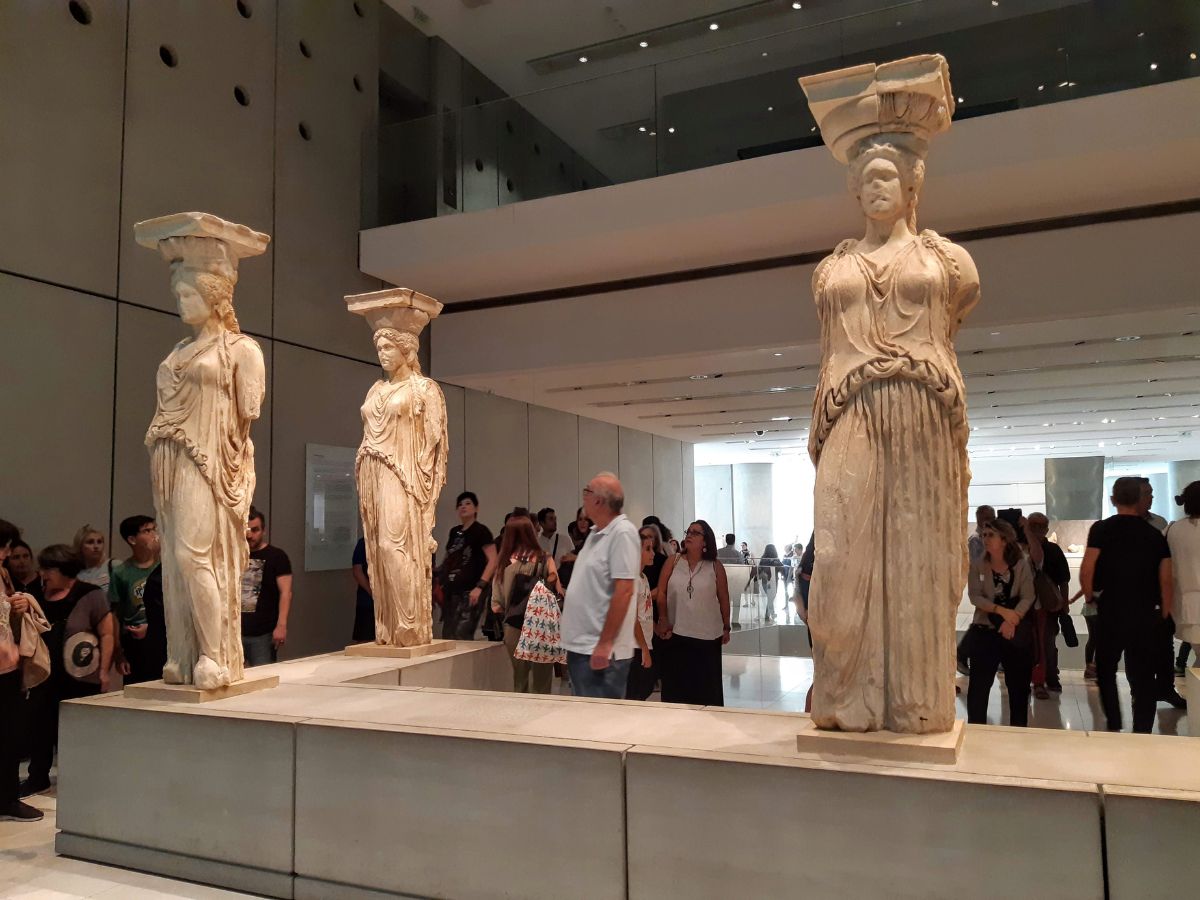
View of the Caryatids in the Acropolis Museum Athens
But, being Greek, I’m obviously biased! This debate has been going on since I was a kid, and it would never occur to me that the Parthenon Marbles should be displayed in a museum in another country.
If you want to share your thoughts down below, and maybe add to the controversy, I’d love to read them!
More articles on Greece
Here are a few more articles that I think you will like:
- All the ancient sites in Athens
- The Greek gods of Mt Olympus
- Things you should know about Greece
- Greek customs and habits who make Greeks who they are
- The most inspiring Greek quotes
 Hi! I’m Vanessa from Athens, and I share travel guides and news about all things Greek. Follow my FB page for photos and news about Greece!
Hi! I’m Vanessa from Athens, and I share travel guides and news about all things Greek. Follow my FB page for photos and news about Greece!

I agree with you totally. I visited the statues in the British Museum a few years ago and came to Greece a couple of years later. Our tour guide put the missing Parthenon Marbles in proper perspective for us.
Indeed they should be returned to Greece. Canadians have fought similar battles with the United Kingdom and have succeeded in having cultural items of our First Nations people returned, reluctantly.
Britain MUST return the Parthenon Marbles! Elgin stole them from Greece with Turkish collusion. With the magnificent, new, Acropolis Museum in Athens, there is NO LONGER an excuse for Britain to keep that which they stole! RETURN THE PARTHENON MARBLES NOW!!
ZETO ELLAS!!
I’m English, and feel really strongly that the marbles should be returned to Greece. They are part of Greek history, not British history.
Do the right thing, and return them to where they belong, with an apology for taking them in the first place !